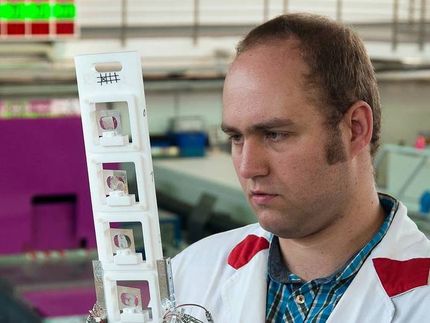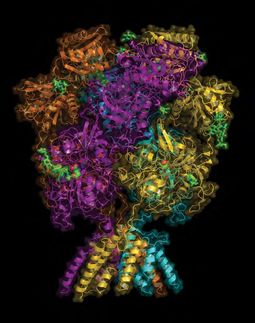Lithium drugs: no prescription residues in drinking water
Studies show that lithium contained in drinking water lowers suicide rates. This still holds true when taking account of drug residues of lithium prescriptions, as has been shown by a current study for Austria within the context of a project supported by the Austrian Science Fund FWF.
Can it be true or is it a coincidence, pondered the psychiatric consultant Nestor Kapusta when learning of a Japanese study showing that the lithium level in drinking water has an impact on suicide rates. This implies that regions where more of the lightweight alkali metal can be detected in drinking water register fewer cases of suicide. – That was in 2009. Meanwhile, research has advanced, and several studies worldwide confirm this connection which could be of great importance for suicide prevention.
Geographical investigations started
Researchers from the Suicide Research Group in the Department for Psychoanalysis and Psychotherapy at the Medical University of Vienna have made a major contribution to these insights and were able to provide evidence for the impact of lithium from natural sources on suicide mortality in Austria. In their most recent investigations, a team led by Nestor Kapusta also explored the impact of lithium prescriptions – lithium being a drug successfully used for many years for treating affective disorders – on lithium levels in drinking water in a project funded by the Austrian Science Fund FWF.
More than 6,000 drinking water samples
“We were able to show even back in 2011 that the correlation between lithium in the drinking water and suicide rates remained significant even if taking into consideration a region’s socio-economic and other factors, such as unemployment, per-capita income, access to health care or gender distribution”, notes Kapusta. In this major study undertaken by the Medical University of Vienna, an interdisciplinary team investigated the connection between the lithium levels found in 6,460 drinking water samples and suicide rates in all Austrian districts.
Unanswered question: drug residues
The scholar notes that one question had remained unanswered, viz. whether the lithium prescriptions might have an impact on the results in Austria, where the drug has been used successfully for decades to treat recurring depression and bipolar (manic-depressive) disorders. On the one hand, these drugs are taken by persons at risk in relatively high doses which improves their preventive effect against suicide; on the other hand, they are excreted again by the patients and thus find their way back into drinking water like other drugs. “Therapeutic dosage is higher by a factor of one thousand than the traces of lithium naturally occurring in drinking water”, explains Kapusta. In this way, residues found in the water might also have a positive impact on the population at large.
Existing knowledge not invalidated
In order to determine the impact of lithium prescriptions on the incidence of lithium in drinking water, the suicide researcher and his colleagues used data on the geographic distribution of lithium prescriptions in Austria and applied these data to the existing results. – As it turned out, the lithium level in Austrian drinking water is hardly influenced at all by prescriptions. Suicide rates also remained unchanged on a statistical average when the researchers included prescriptions in the computations. “Hence, existing knowledge, according to which the lithium in drinking water stems from natural sources but still has an impact on suicide mortality, has not been contradicted”, states Kapusta.
Lithium – not a panacea
In medical terms, the project findings indicate that researchers should continue to investigate lithium and seek to determine what influence micro-doses of the substance, as occurring in drinking water, have on the human organism. At the same time, Nestor Kapusta warns against considering lithium as a panacea, as some reports suggest. According to Kapusta, suicide is always a multi-factor phenomenon, and the scholar is not in favour of current considerations to deliberately add the substance to drinking water. “We don’t know what the influence of such low doses might be on pregnant women or children. Lithium also affects thyroid function. We would need further basic research to understand whether adding it to drinking water is innocuous.”
Researchers perceive potential benefits
According to Kapusta, many ongoing investigations prove that lithium has aroused the interest of researchers. It was found, for instance, that even small amounts of the alkali metal slow down the progress of neurodegenerative diseases such as Alzheimer’s by inhibiting the decay of brain cells. Nestor Kapusta and his colleagues, together with Gerda Egger from the Clinical Institute of Pathology and Daniel König from the Department of Psychiatry and Psychotherapy, are also conducting investigations on a specific type of brain cell, the neuroblastoma cells. “Studies on single-cell organisms show that by regulating the GSK-3 enzyme lithium extends the life span of these organisms by five percent. That is an amazing effect of a simple, naturally occurring ion”, comments Kapusta.
























































